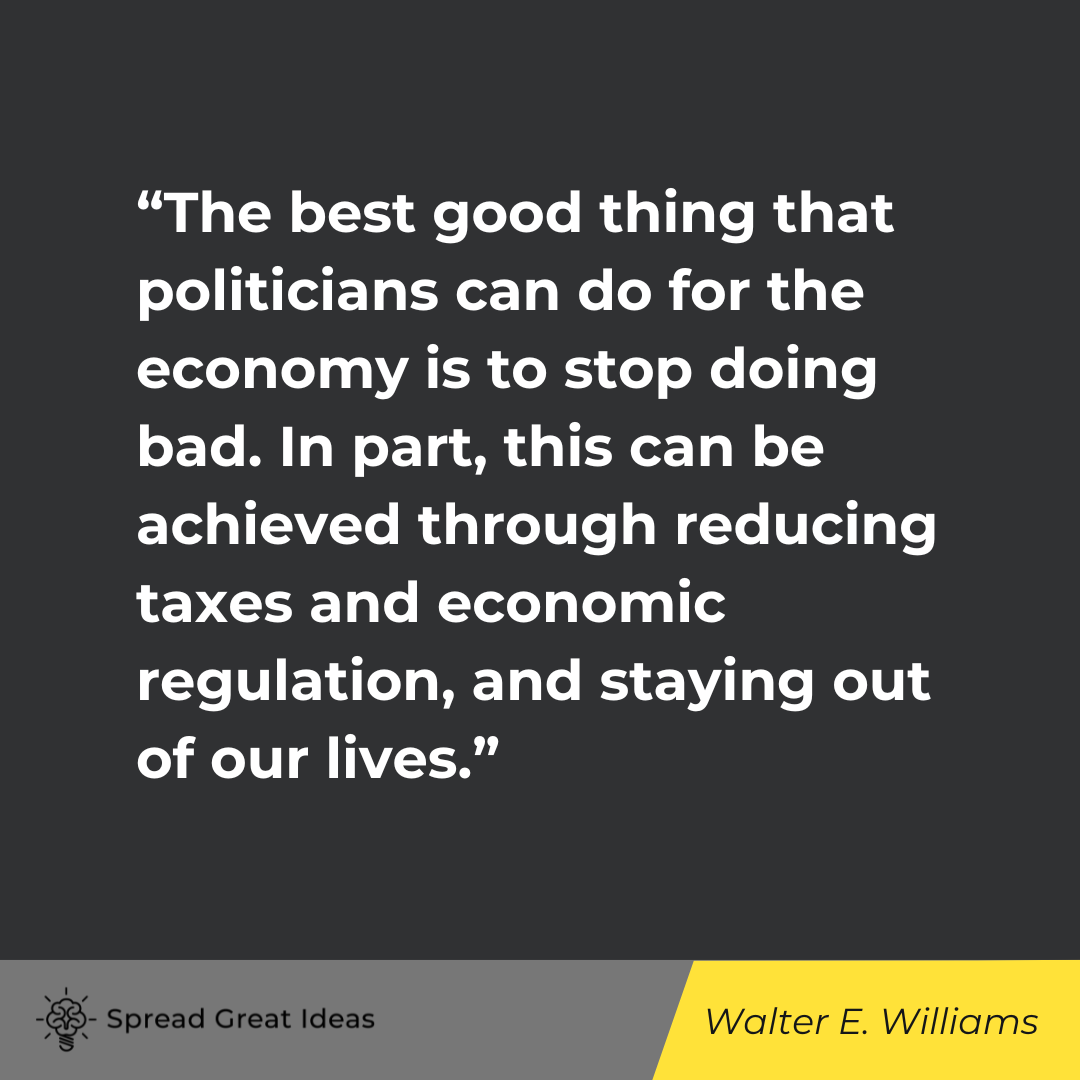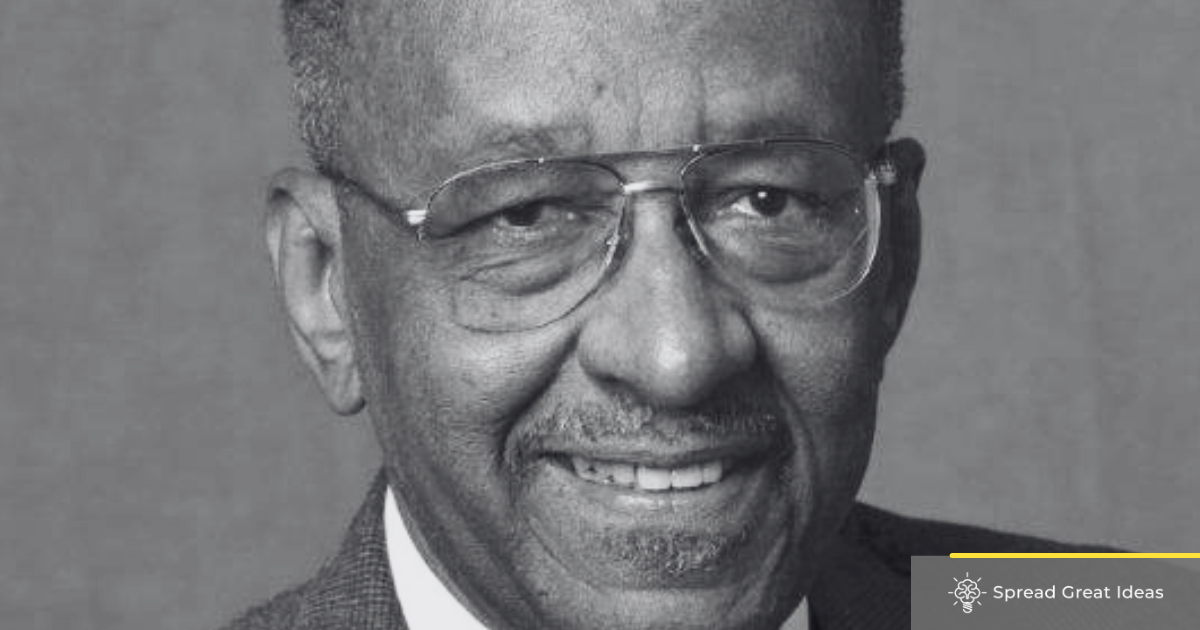
“The welfare state has done to black Americans what slavery couldn’t do, and that is to destroy the black family.”
Walter E. Williams was born in West Philadelphia, but any parallel to a certain ‘90s sitcom ends there. He was raised by his mother in North Philadelphia. That’s where the future academic and preeminent economist shared a neighborhood with Bill Cosby. He even knew the real “Fat Albert” in person. (It is highly unlikely that Walter E. Williams quotes Fat Albert very often. Not one of the Cosby Kids had very much to say about economics.)
Williams was drafted into the U.S. Army in 1959. There he was court-martialed for daring to challenge racial order and the conventions of Jim Crow. In spite of Mark Twain’s best advice Williams argued his own case at his hearing – and won.
Williams resumed his college education at UCLA after flying 51 combat missions in the Korean War. He became fast friends with Thomas Sowell despite having never attended one of his lectures. Williams earned his master’s degree and Ph.D. in economics before going on to teach at Temple University, Stanford University, and finally George Mason University.
Williams is a libertarian, antisocialist, and passionate advocate for laissez-faire capitalism. In his view a free market unfettered by government intervention is the most productive economic system ever devised. The professor has named Ludwig von Mises, Milton Friedman and F. A. Hayek as crucial influences on his philosophical development. He has also expressed a great fondness for Ayn Rand’s writing and her tireless defense of capitalism.
Yet Williams has certainly contributed a great deal to modern libertarian discourse on his own. After analyzing the Davis-Bacon Act and its impact on the economy, he concluded that minimum wage laws actually harm minorities. In his book The State Against Blacks Williams makes an iron clad case that the government’s involvement in America’s economy has done more to hamper the development of African American communities than actual racism – the impact of which he would also argue has been vastly overstated.
Williams has addressed several other libertarian issues in his essays and frequent appearances on radio and television. He denounces anti-discrimination laws for their gross violation of freedom of association. He is just as supportive of gun control, a government measure which serves only to jeopardize the innocent while failing to reduce crime. He believes states ought to have every right to secede if they wish to. And in true libertarian fashion Williams believes in the right to sell one’s own organs. (If your kidney is not your own to sell, then whose else could it be?)
In 2009 the Ludwig von Mises Institute ranked Williams the third most influential Hayekian intellectual in America. The subject of this brief biography was no doubt pleased to see his old friend Thomas Sowell ranked first.
Walter E. Williams has never let the mainstream narrative dictate his deeply cherished political and economic beliefs. His many academic distinctions aside, that alone makes him a paragon for other libertarians to look up to.
Walter E. Williams Quotes
― Walter E. Williams
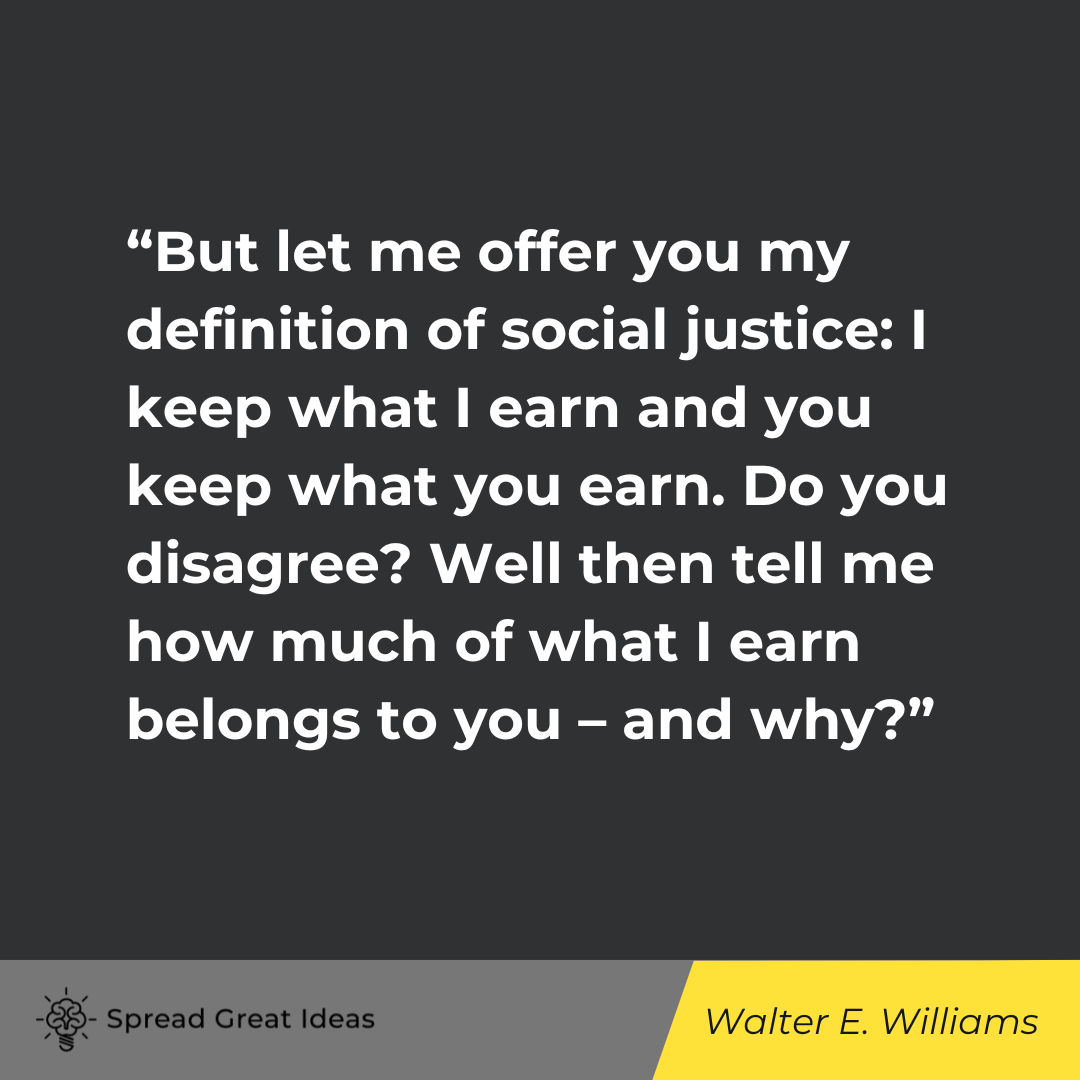
“Prior to capitalism, the way people amassed great wealth was by looting, plundering and enslaving their fellow man. Capitalism made it possible to become wealthy by serving your fellow man.”
― Walter E. Williams
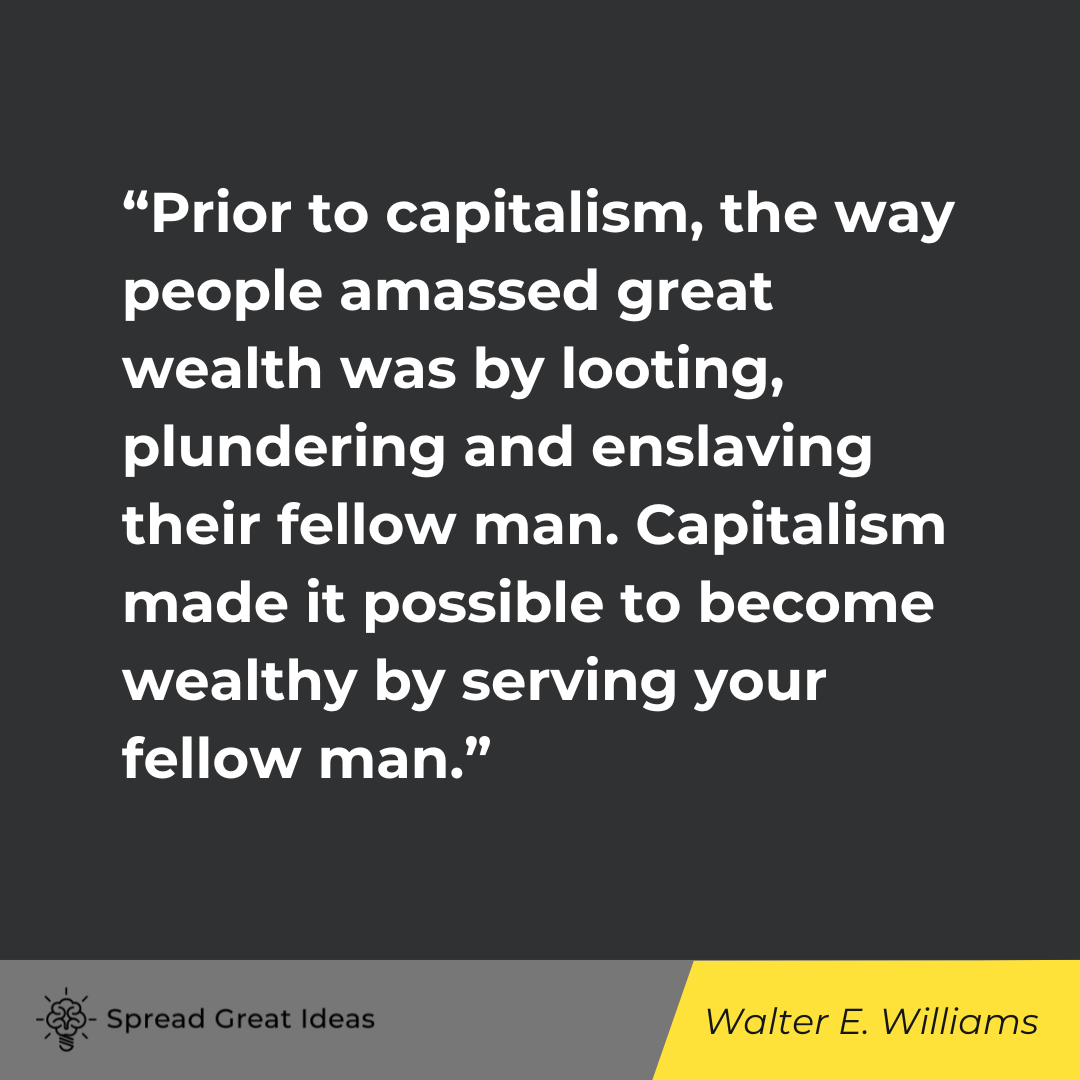
“Democracy and liberty are not the same. Democracy is little more than mob rule, while liberty refers to the sovereignty of the individual.”
― Walter E. Williams
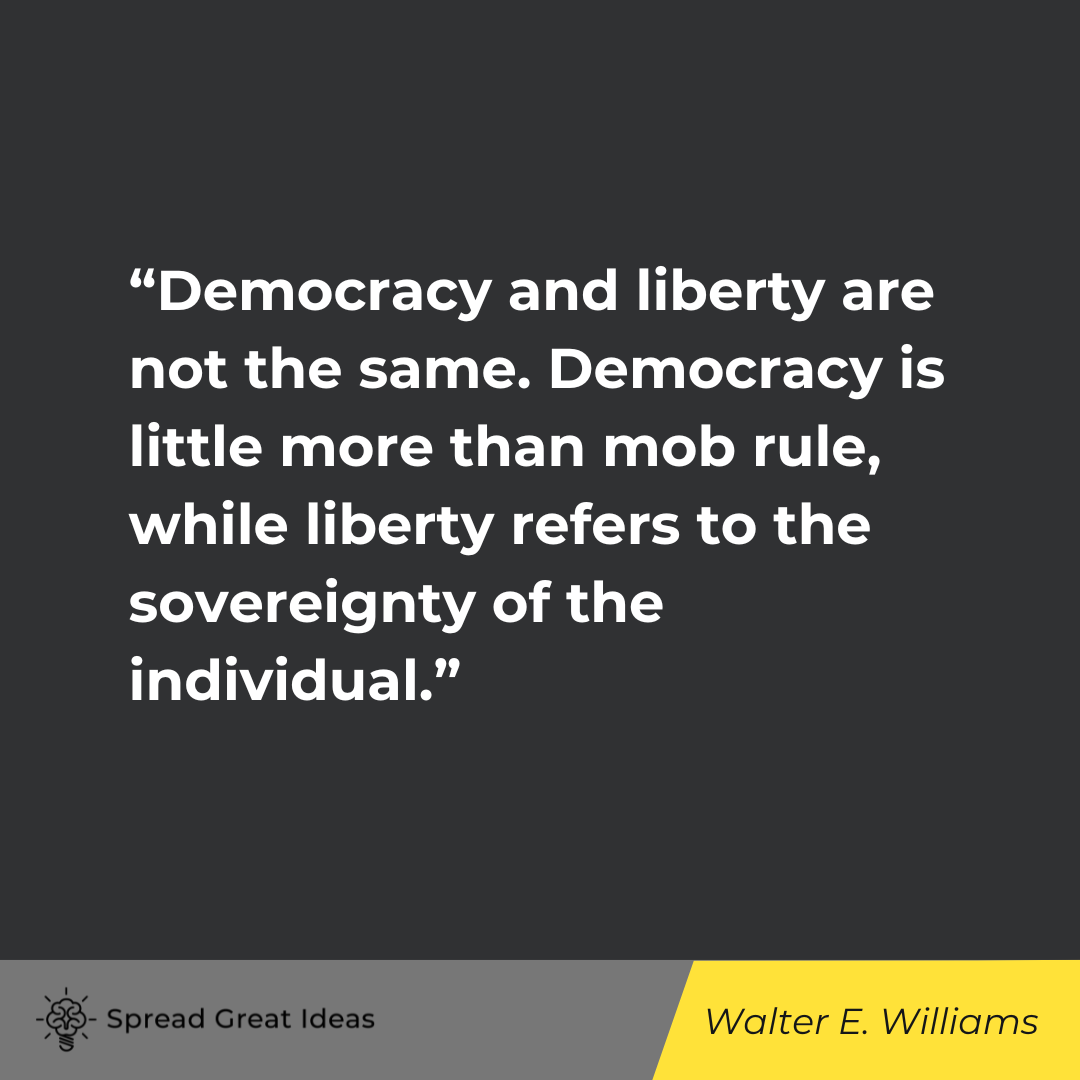
“The public good is promoted best by people pursuing their own private interests.”
― Walter E. Williams

“No matter how worthy the cause, it is robbery, theft, and injustice to confiscate the property of one person and give it to another to whom it does not belong”
― Walter E. Williams
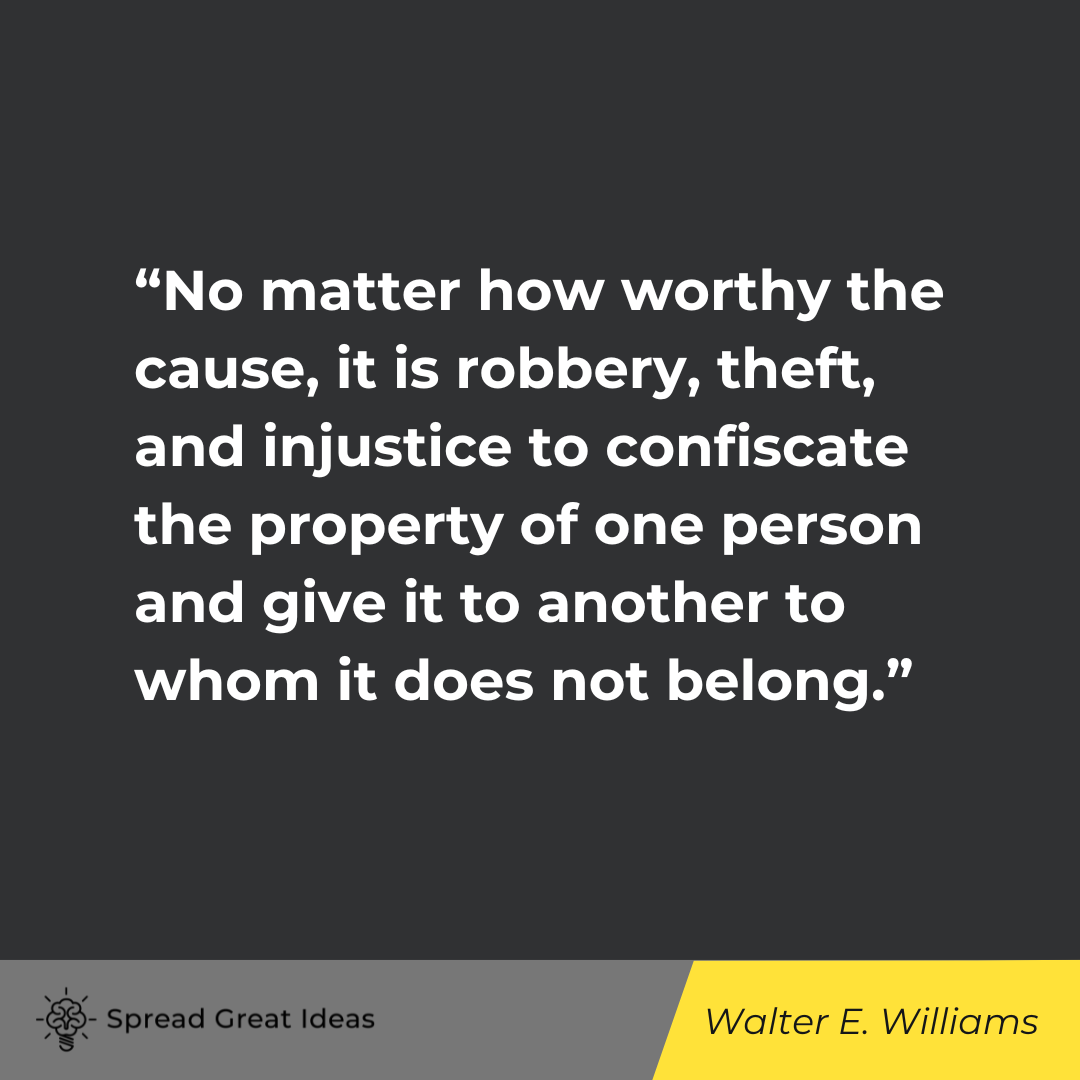
“Discrimination is simply the act of choice. Scarcity requires us to choose; scarcity is the cause of discrimination!”
― Walter E. Williams
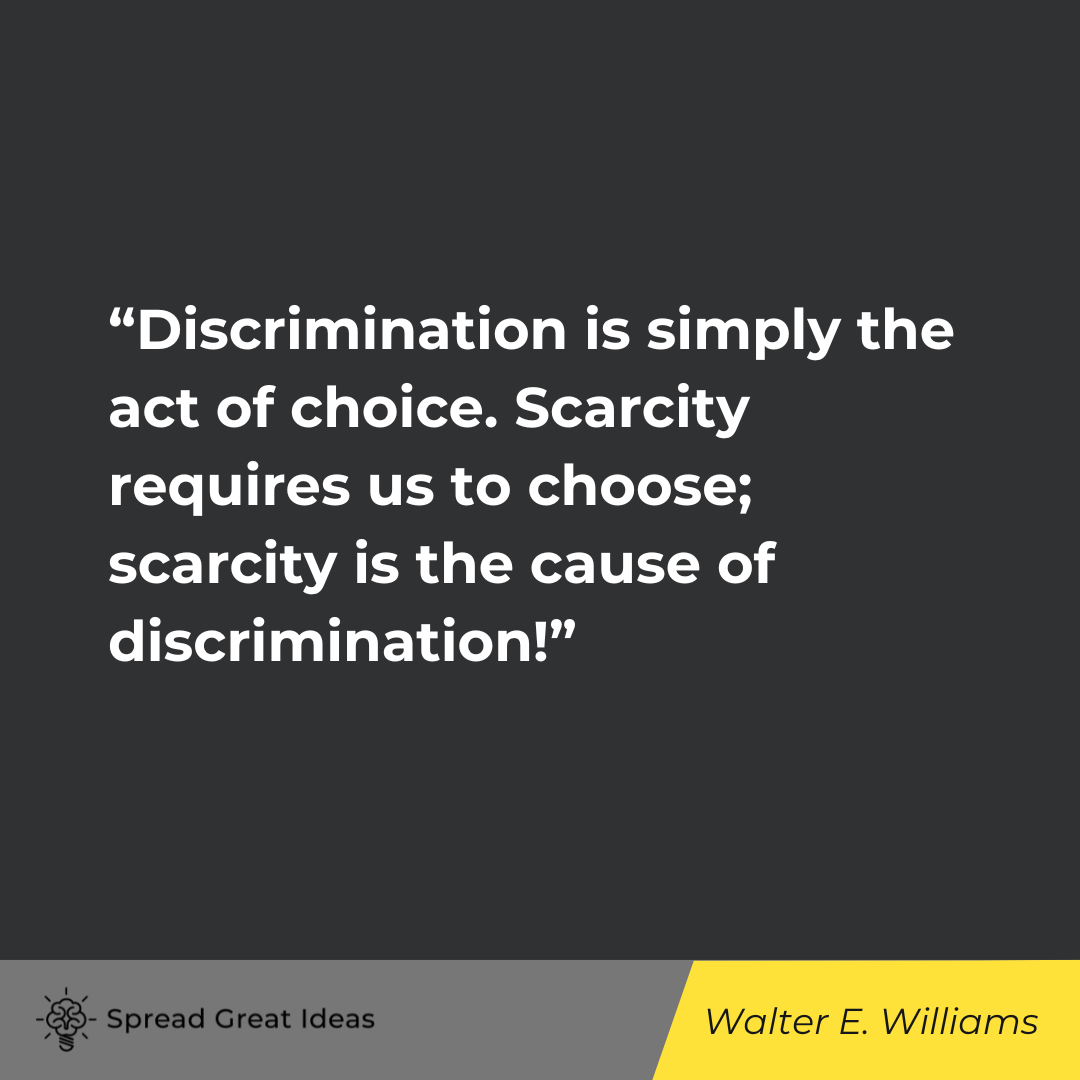
“There are many farm handouts; but let’s call them what they really are: a form of legalized theft. Essentially, a congressman tells his farm constituency, “Vote for me. I’ll use my office to take another American’s money and give it to you.”
― Walter E. Williams
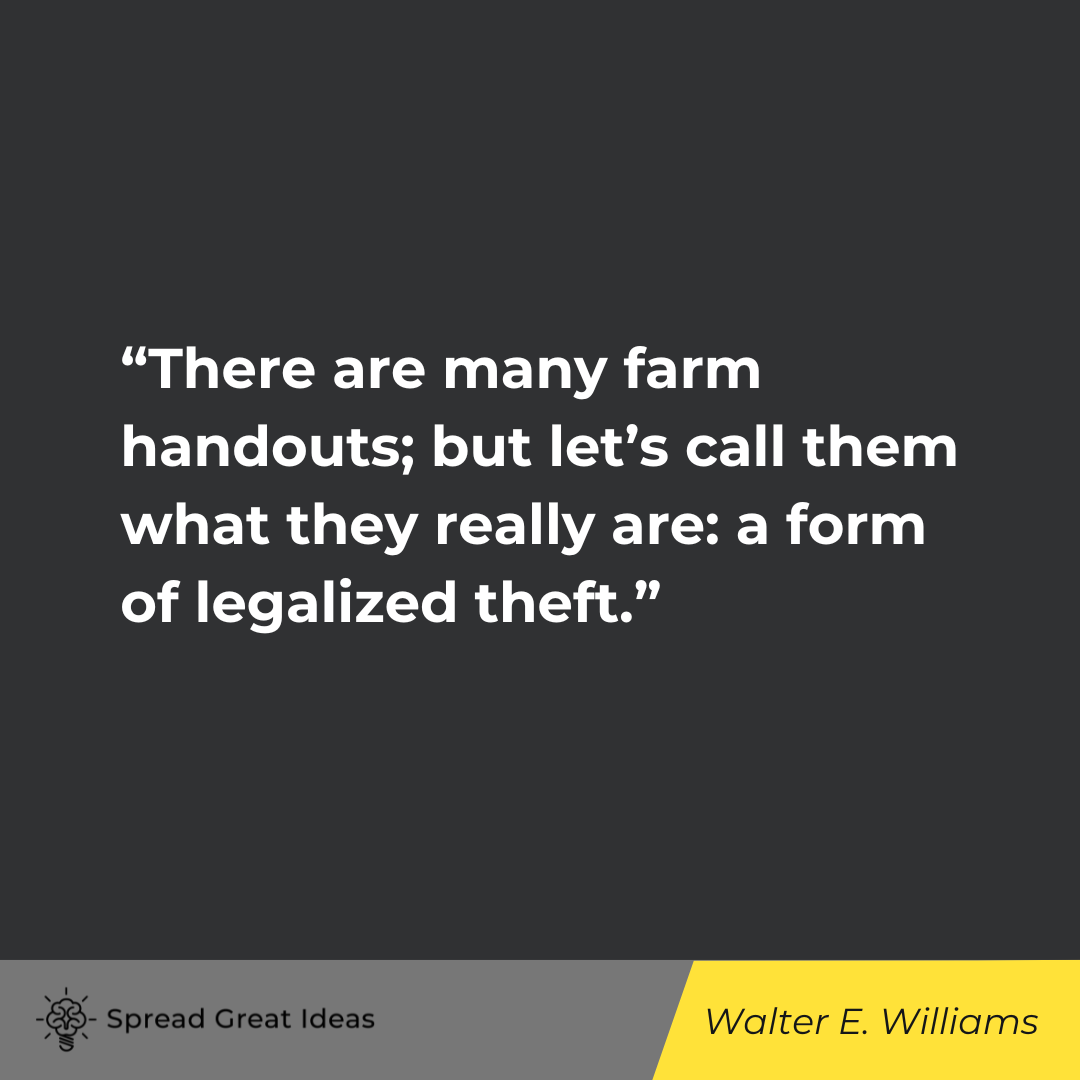
“Employer substitution of higher-skilled for lower-skilled workers is not the only effect of the minimum wage law. It also gives employers an economic incentive to make other changes: substitute machines for labor; change production techniques; relocate overseas; and eliminate certain jobs altogether. The substitution of automatic dishwashers for hand washing, and automatic tomato-picking machines for manual pickers, are examples of the substitution of machines for labor in response to higher wages.”
― Walter E. Williams, Race & Economics: How Much Can Be Blamed on Discrimination?
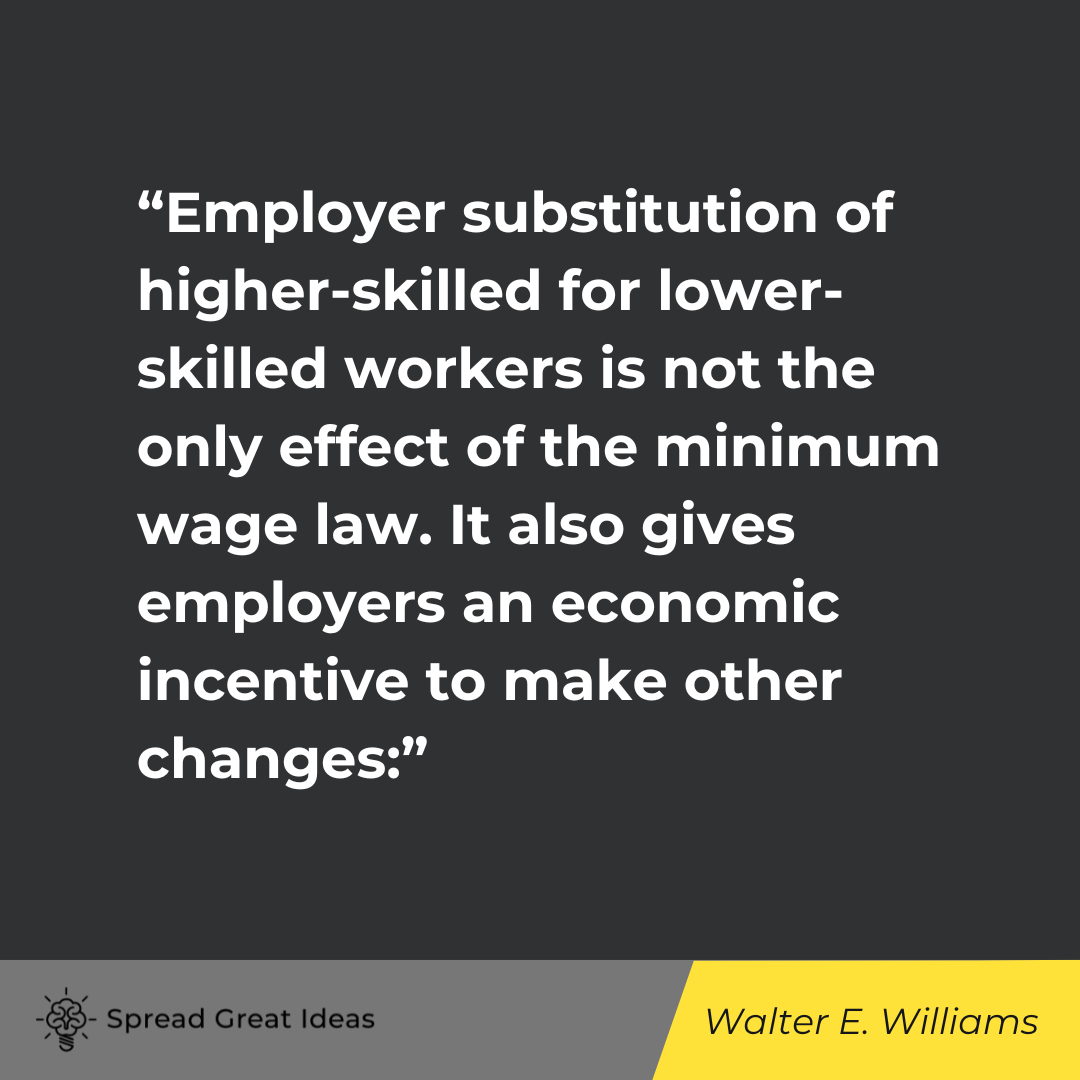
“If we’re ignorant, we won’t even know when government infringes on our liberties. Moreover, we’ll happily cast our votes for those who’d destroy our liberties.”
― Walter E. Williams

“Philosopher Johann Wolfgang von Goethe explained that “no one is as hopelessly enslaved as the person who thinks he’s free.” That’s becoming an apt description for Americans who are oblivious to—or ignorant of—the liberties we’ve lost.”
― Walter E. Williams, American Contempt for Liberty

“Believing that presidents have taxing and spending powers leaves Congress less politically accountable for our deepening economic quagmire. Of course, if you’re a congressman, not being held accountable is what you want.”
― Walter E. Williams, American Contempt for Liberty
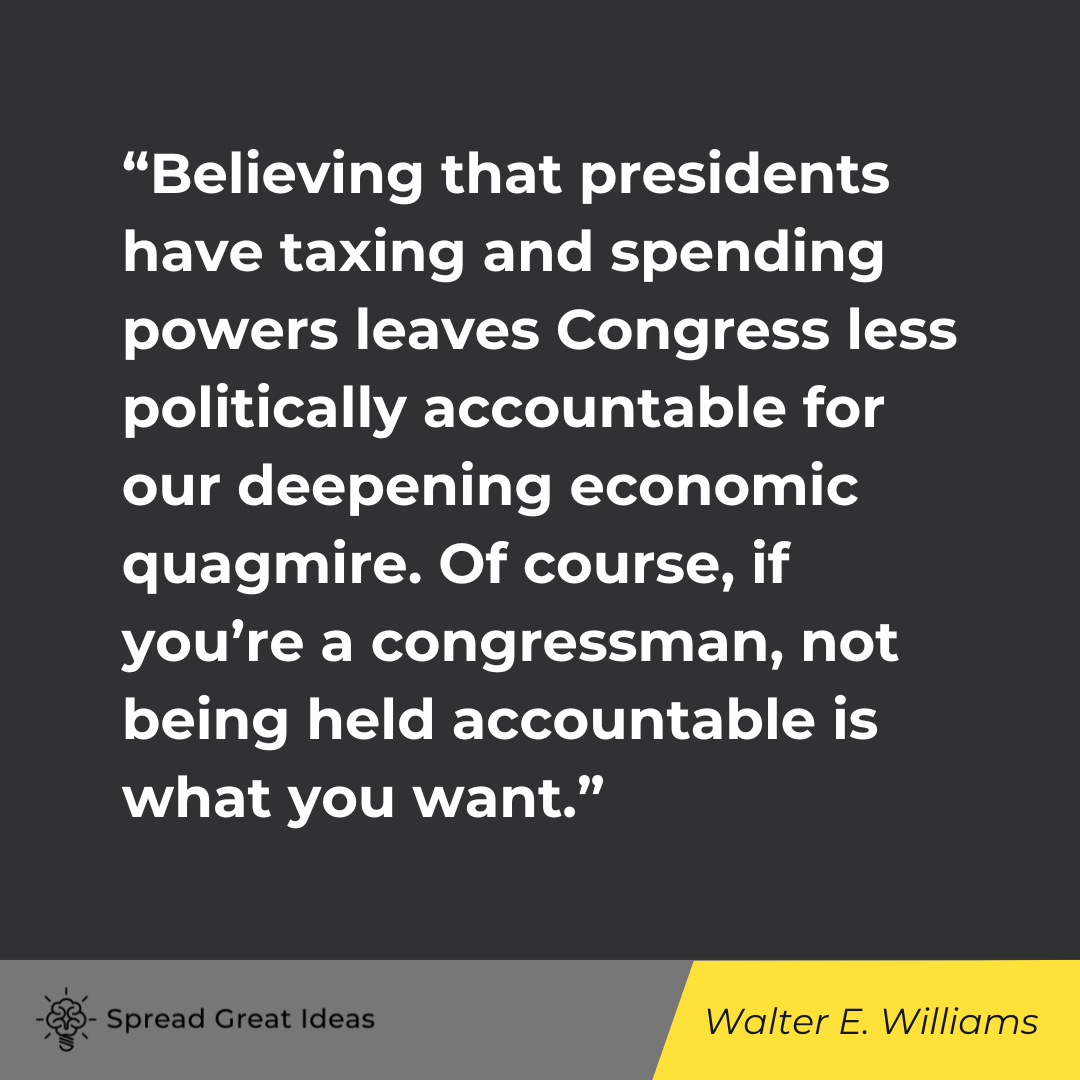
“The act of reaching into one’s own pockets to help a fellow man in need is praiseworthy and laudable. Reaching into someone else’s pocket is despicable.”
― Walter E. Williams
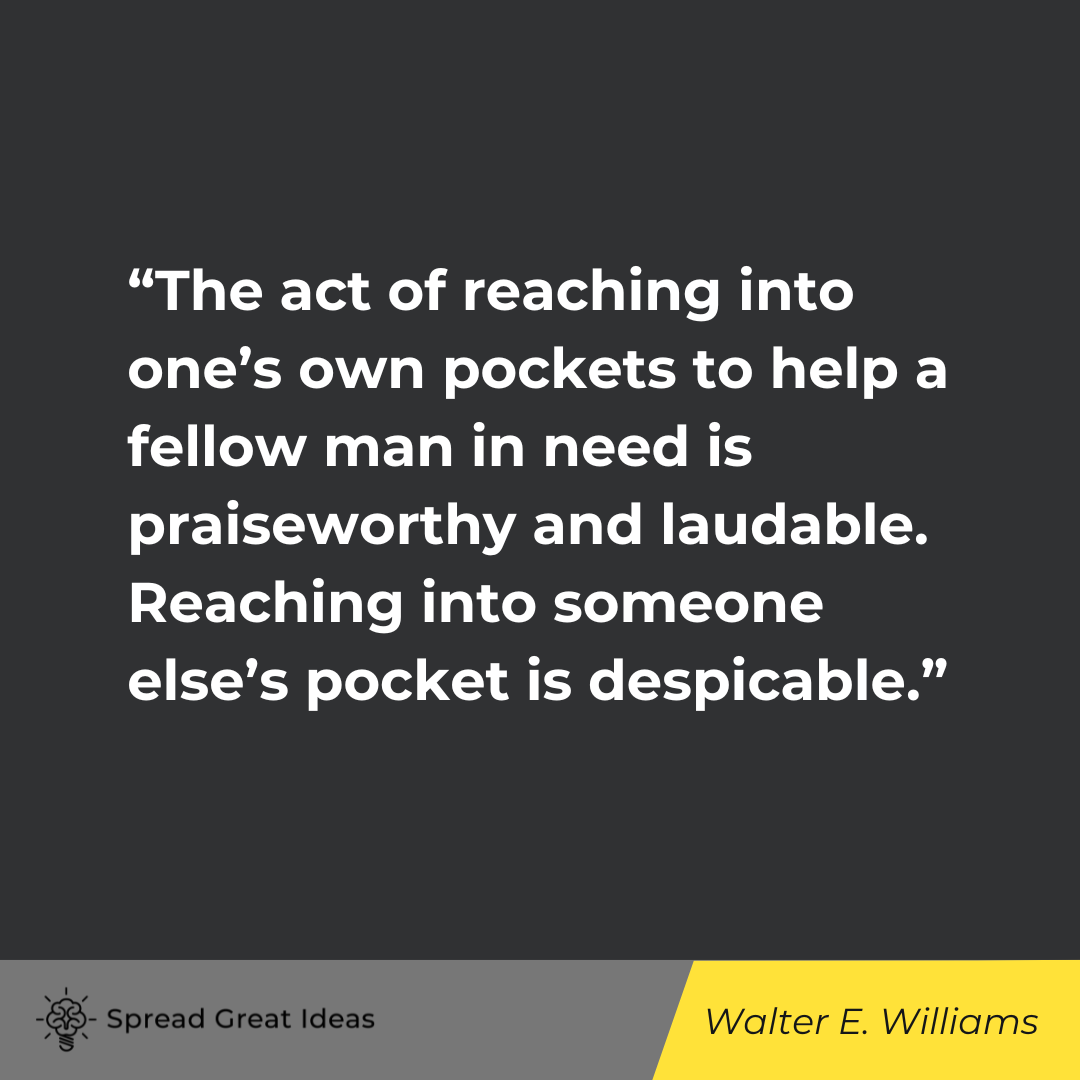
“Some say it’s wrong to profit from the misfortune of others. I ask my students whether they’d support a law against doing so. But I caution them with some examples. An orthopedist profits from your misfortune of having broken your leg skiing. When there’s news of a pending ice storm, I doubt whether it saddens the hearts of those in the collision repair business. I also tell my students that I profit from their misfortune—their ignorance of economic theory.”
― Walter E. Williams
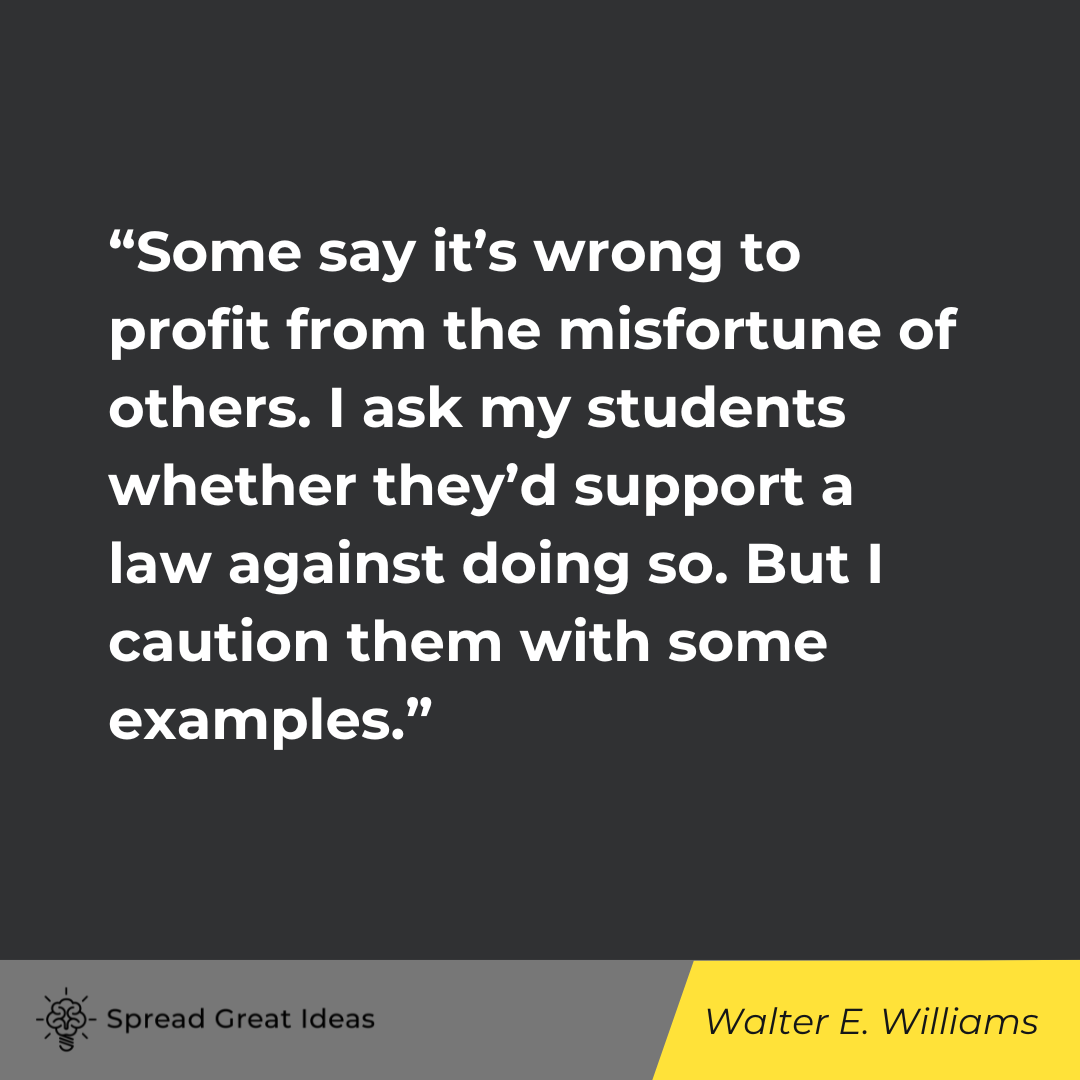
“Government spending is no less than the confiscation of one person’s property to give it to another to whom it does not belong.”
― Walter E. Williams
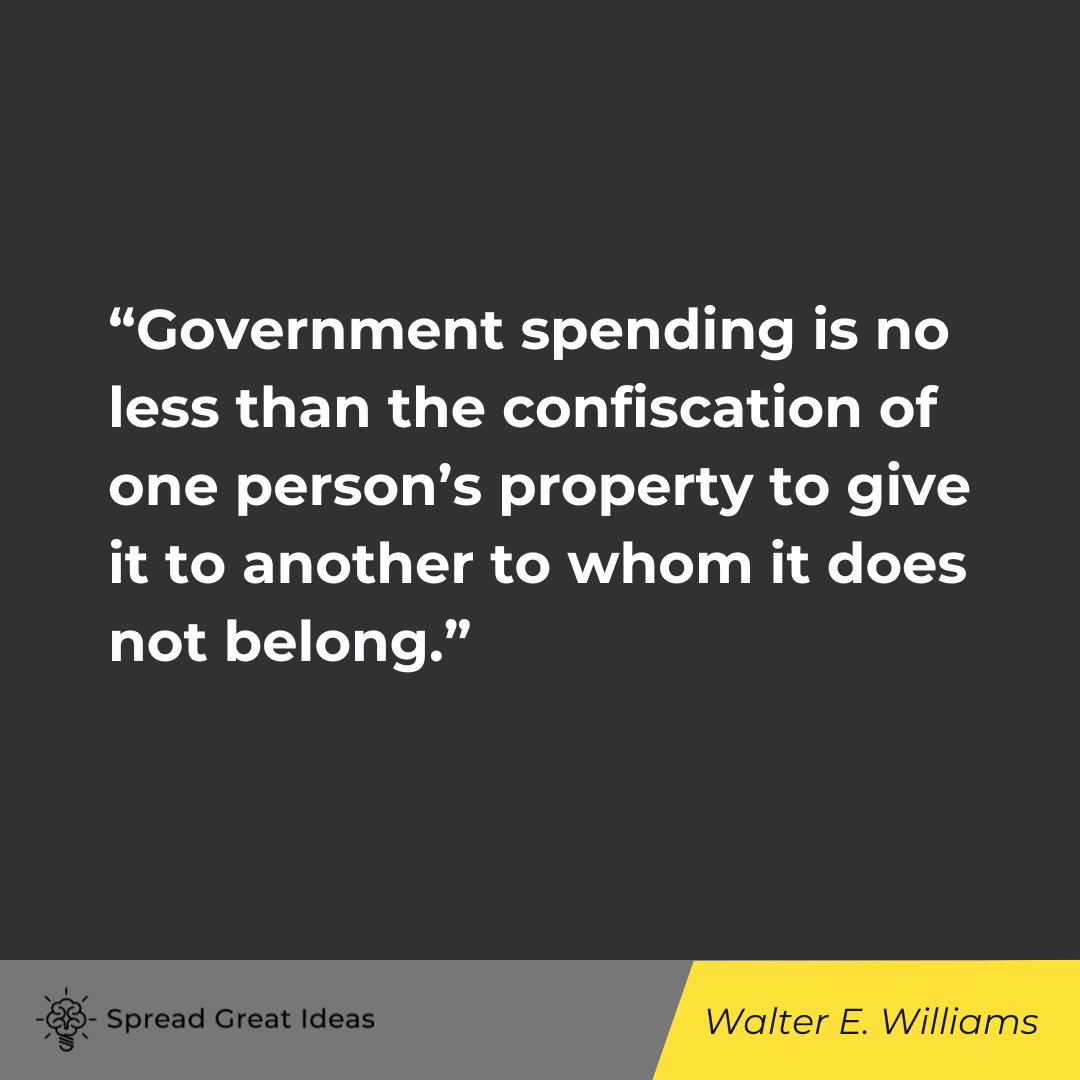
“Do-gooders fail to realize that most good is not done in the name of good but done in the name of self-interest.”
― Walter E. Williams, American Contempt for Liberty

“It’s government people, not rich people, who have the power to coerce and make our lives miserable. Coercive power goes a long way toward explaining political corruption.”
― Walter E. Williams, American Contempt for Liberty
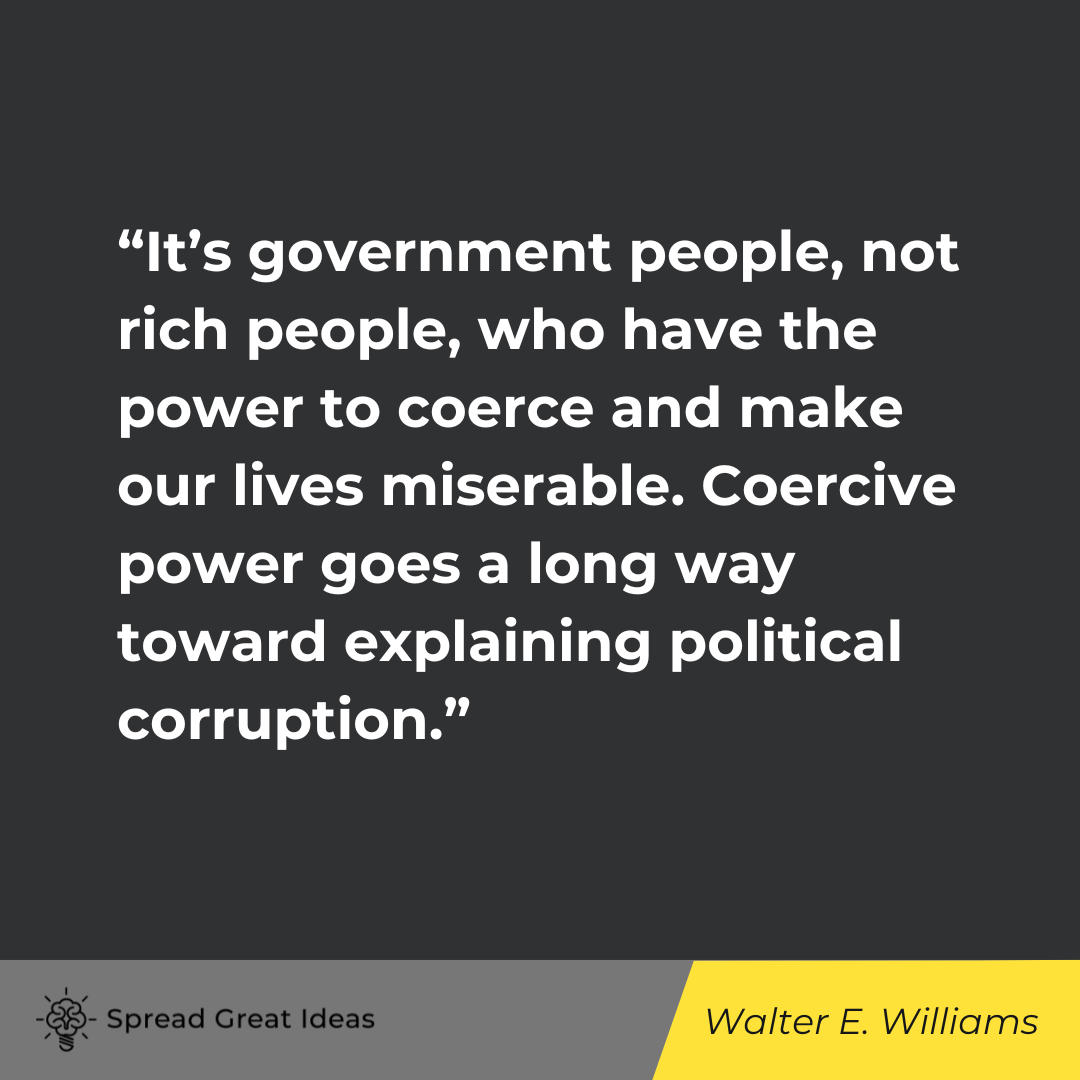
“The law-abiding black citizen who is passed up by a taxi, refused pizza delivery, or stopped by the police can rightfully feel a sense of injustice and resentment. But the bulk of those feelings should be directed at those who have made race synonymous with higher rates of criminal activity rather than the taxi driver or pizza deliverer who is trying to earn a living and avoid being a crime victim.”
― Walter E. Williams, Race & Economics: How Much Can Be Blamed on Discrimination?
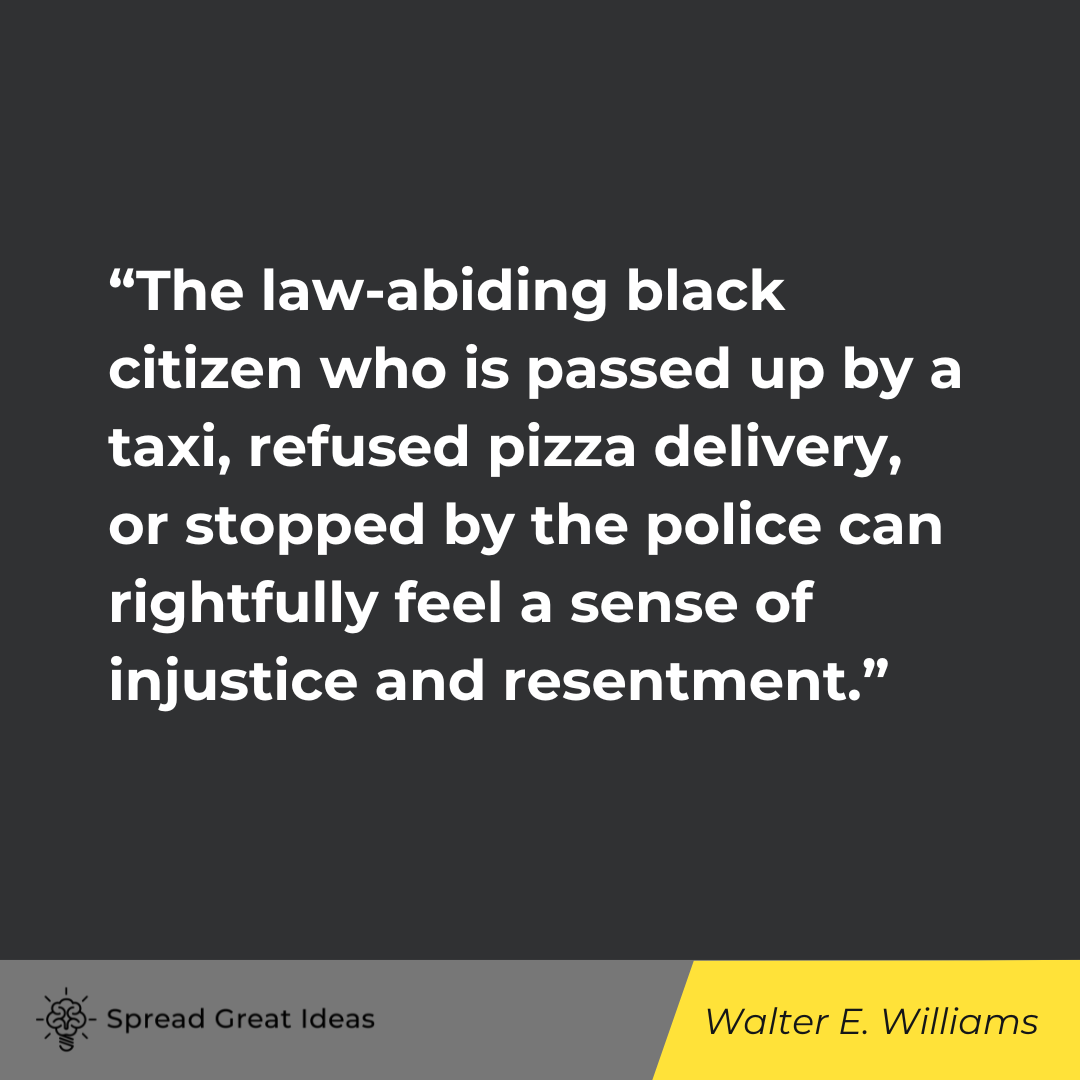
“Nothing in our Constitution suggests that government is a grantor of rights. Instead, government is a protector of rights.”
― Walter E. Williams

“If we buy into the notion that somehow property rights are less important, or are in conflict with, human or civil rights, we give the socialists a freer hand to attack our property.”
― Walter E. Williams

“The moral tragedy that has befallen Americans is our belief that it is okay for government to forcibly use one American to serve the purposes of another–that in my book is a working definition of slavery.”
― Walter E. Williams

“Politicians have immense power to do harm to the economy. But they have very little power to do good.”
― Walter E. Williams
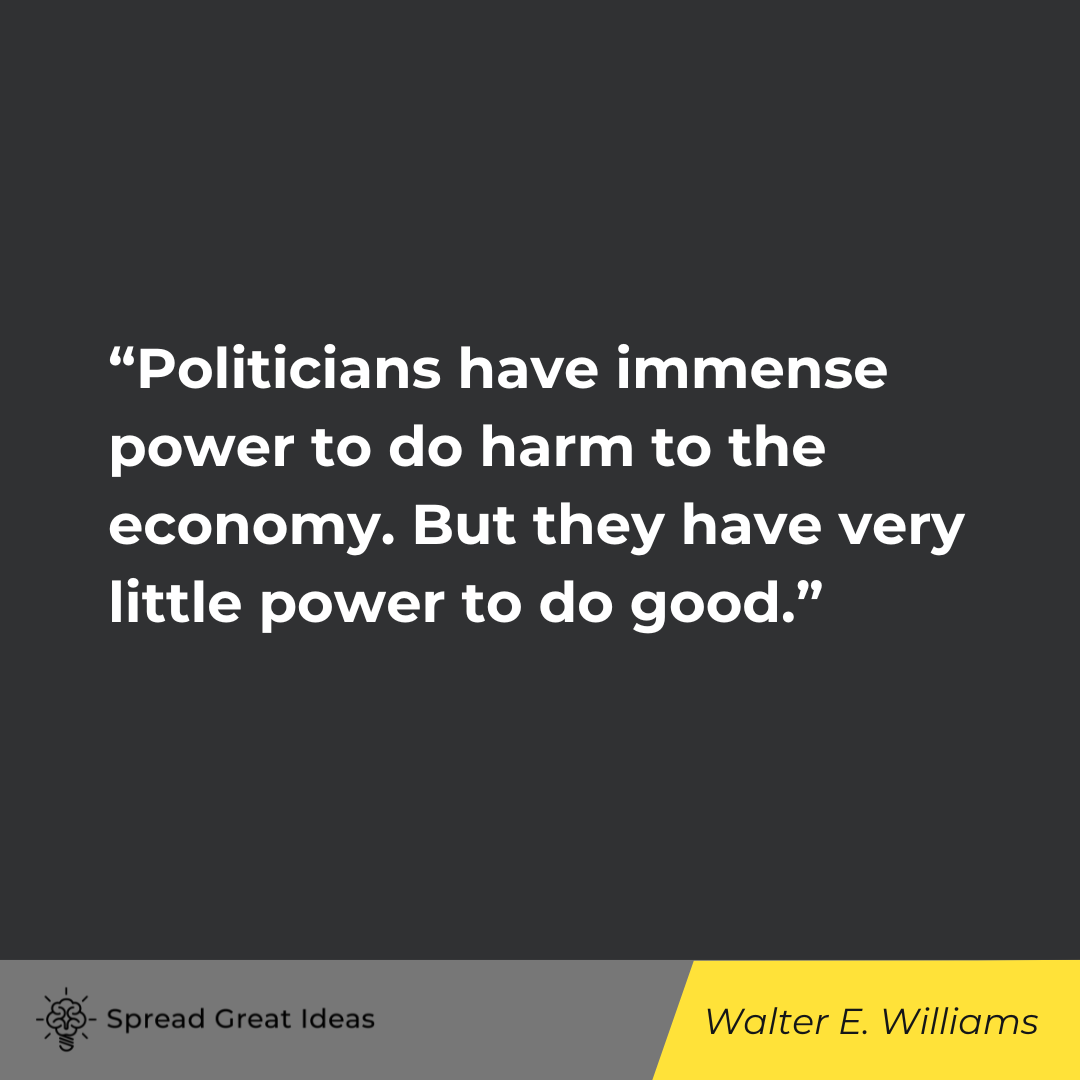
“The best good thing that politicians can do for the economy is to stop doing bad. In part, this can be achieved through reducing taxes and economic regulation, and staying out of our lives.”
― Walter E. Williams
We hope you enjoyed our collection of Walter E. Williams quotes!
